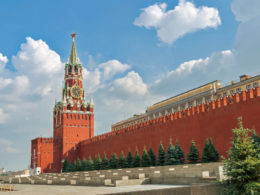Russian authorities have implemented new measures to restrict digital communications and control the domestic information environment. On 4 July 2024, several Virtual Private Network (VPN) applications were removed from the Russian version of the App Store at the request of Roskomnadzor, the Russian communications regulator, the British Defense Ministry reported in its intelligence report on 6 July.
On the same day, Russian media reported that the Federal Security Service (FSB) demanded Russian telecom operators cease providing Voice over Internet Protocol (VoIP) Telephony services. The FSB cited fraud prevention as the official reason for this measure.
These measures are part of Russia's broader strategy to restrict access to independent and foreign media while enhancing government surveillance. This effort has escalated since Russia's 2022 full-scale invasion of Ukraine, leading to the shutdown or relocation of independent media and stricter controls on foreign media access.
The Ministry wrote:
- According to Russian independent media on 4 July 2024, at the request of the Russian communications regulator Roskomnadzor, several Virtual Private Network (VPN) applications were removed from the Russian version of the App Store. This follows previous removals of VPN apps in 2022 and 2023. Roskomnadzor gained the power to block access to VPN services without reference to a court in March 2024. Roskomnadzor justified the ban due to the apps containing ‘content illegal in Russia’. This is almost certainly intended to restrict the ability of Russian citizens to access independent Russian, and international media, as well as to simplify the ability of the security services to monitor Russian citizens.
- Separately, also on 4 July, Russian media reported that the Russian Federal Security Service (FSB), has demanded that Russian telecom operators stop providing Voice over Internet Protocol (VoIP) Telephony services. VoIP is increasingly the international industry standard due to its broadband efficiency and the ability to integrate telephony into a unified communications system together with email and video teleconferencing. The implausible official FSB justification is that the measure is meant to reduce instances of fraud. In reality, it is highly likely it is intended to increase the ability of the Russian authorities to monitor and restrict the communications of private citizens and corporate entities.
- These two measures are both in line with Russian efforts to control its domestic information environment and limit citizens’ access to information that does not align with government narratives. This effort is longstanding. In 2019, Russia held exercises to temporarily cut off Russian access to the internet and passed ‘Sovereign Internet’ legislation in Ukraine. However, this effort has substantially accelerated after the full-scale Russian invasion of Ukraine in February 2022, with most independent media being shuttered or forced abroad, and increasingly draconian restrictions on citizens’ abilities to access foreign media. The effect of these restrictions is yet to be seen, as educated urban Russians continue to find inventive ways to get around these measures.
Related:
- Ukrainian woman forced into anti-war protest in Moscow receives 12-year sentence
- Russia considers WhatsApp ban, citing risk of “prohibited information”
- ISW: Putin’s post-election speech signals continued reliance on FSB
- UK intel: Kremlin disrupts Russians’ access to VPNs to control domestic information
- Facts about Crimea’s annexation now taboo in Russia (2019)





